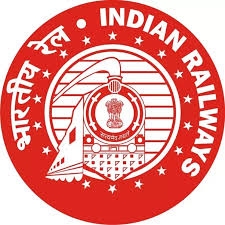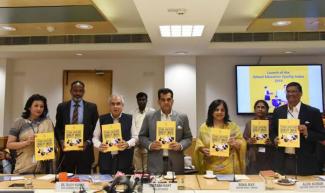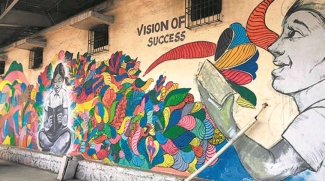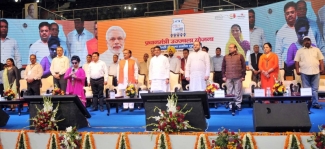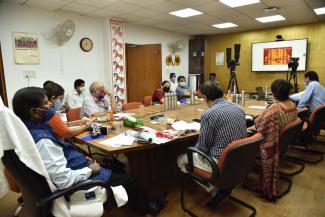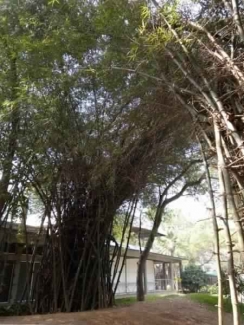
The restructured National Bamboo Mission (NBM) was launched in 2018-19 to focus on the development of complete value chain of bamboo sector and link growers with markets. Major objectives of the Mission are:
- To increase the area under bamboo plantation in non forest Government and private lands to supplement farm income and contribute towards resilience to climate change as well as availability of quality raw material for industries.
- To improve post-harvest management through establishment of innovative primary processing units near the source of production, primary treatment and seasoning plants, preservation technologies and market infrastructure.
- To promote product development keeping in view market demand, by assisting R&D, entrepreneurship & business models at micro, small and medium levels and feed bigger industry.
- To rejuvenate the under developed bamboo industry in India.
- To promote skill development, capacity building, awareness generation for development of bamboo sector from production to market demand.
- To re-align efforts so as to reduce dependency on import of bamboo and bamboo products by way of improved productivity and suitability of domestic raw material for industry, so as to enhance income of the primary producers.
Budget Estimate for the year 2019-20 is Rs.150.00 crores.
Cabinet Committee on Economic Affairs (CCEA) approved restructured National Bamboo Mission (NBM) as a Centrally Sponsored Scheme in April 2018.
The activities under NBM are approved as per the Annual Action Plans received from the State Governments. The operational guidelines of NBM provide inter alia assistance for treatment, establishment of markets, incubation centres, value added product development and processing, development of tools & equipments, research & development, both in the Government and Private Sector which would include start ups also.
Scheme of Fund for Regeneration of Traditional Industries (SFURTI) is implemented by the M/o Micro Small & Medium Enterprises (MSME). It envisages providing need-based assistance for replacement of production equipment, setting up of common facility centres (CFC), product development, quality improvement, improved marketing, training and capacity building. Under the scheme, 12 bamboo related clusters have been approved in 8 states.
Considering the need and demand from bamboo based stakeholders and to provide cheaper bamboo products to the consumers, the Government has reduced GST on bamboo furniture & bamboo flooring to 12%. The Mission also envisages establishment of primary processing units close to the production area to reduce transportation costs and complete utilization of bamboo to move towards zero wastage so as to improve economies of entrepreneurs and lower costs to consumers.
For popularizing use of bamboo & bamboo based products, seminars, conferences, awareness campaign etc. at National, State & District Levels are regularly conducted under the restructured NBM. Awareness is also created through print and electronic media and participation of NBM in fairs national & international fairs.
This information was given in a written reply by the Union Minister of Agriculture and Farmers Welfare Shri Narendra Singh Tomar in Lok Sabha on Tuesday.






